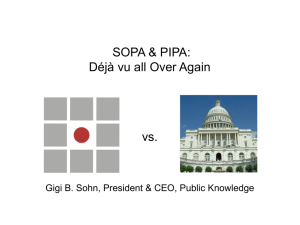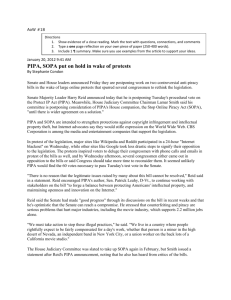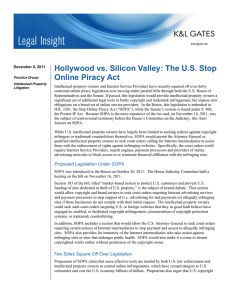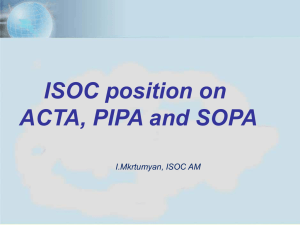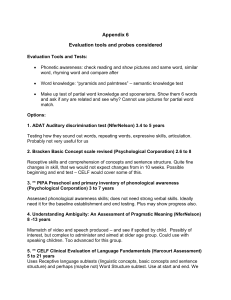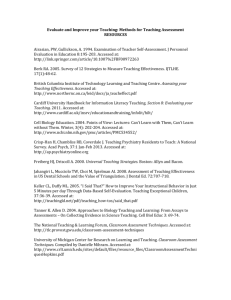Hollywood vs. Silicon Valley DI - Daniels Fund Ethics Initiative
advertisement
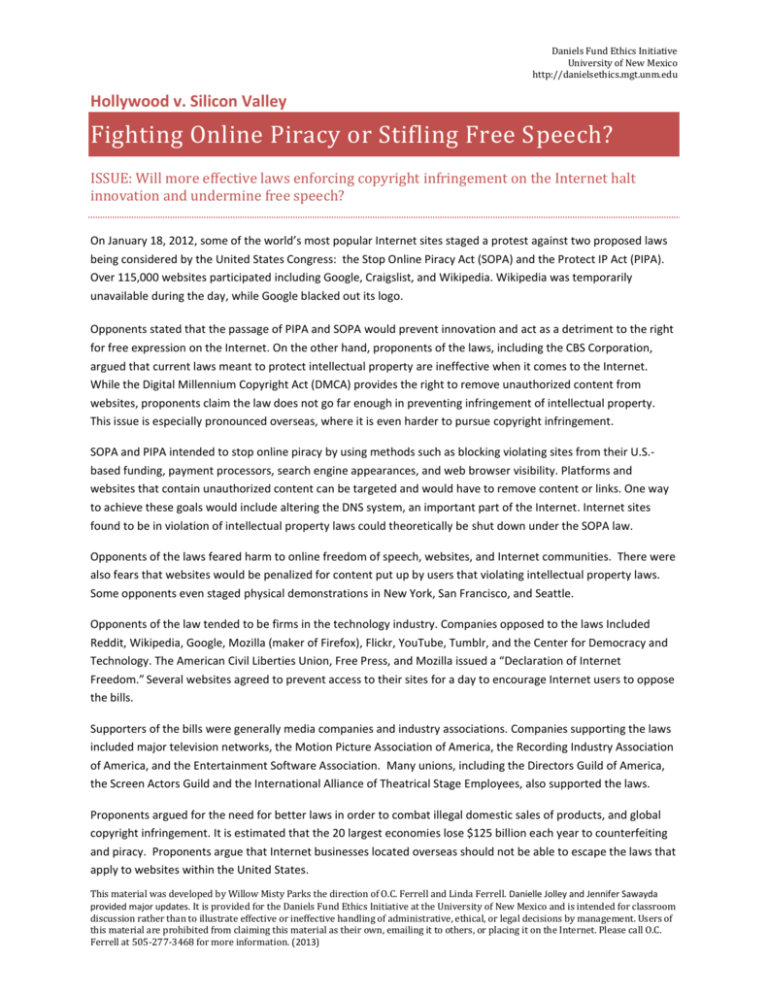
Daniels Fund Ethics Initiative University of New Mexico http://danielsethics.mgt.unm.edu Hollywood v. Silicon Valley Fighting Online Piracy or Stifling Free Speech? ISSUE: Will more effective laws enforcing copyright infringement on the Internet halt innovation and undermine free speech? On January 18, 2012, some of the world’s most popular Internet sites staged a protest against two proposed laws being considered by the United States Congress: the Stop Online Piracy Act (SOPA) and the Protect IP Act (PIPA). Over 115,000 websites participated including Google, Craigslist, and Wikipedia. Wikipedia was temporarily unavailable during the day, while Google blacked out its logo. Opponents stated that the passage of PIPA and SOPA would prevent innovation and act as a detriment to the right for free expression on the Internet. On the other hand, proponents of the laws, including the CBS Corporation, argued that current laws meant to protect intellectual property are ineffective when it comes to the Internet. While the Digital Millennium Copyright Act (DMCA) provides the right to remove unauthorized content from websites, proponents claim the law does not go far enough in preventing infringement of intellectual property. This issue is especially pronounced overseas, where it is even harder to pursue copyright infringement. SOPA and PIPA intended to stop online piracy by using methods such as blocking violating sites from their U.S.based funding, payment processors, search engine appearances, and web browser visibility. Platforms and websites that contain unauthorized content can be targeted and would have to remove content or links. One way to achieve these goals would include altering the DNS system, an important part of the Internet. Internet sites found to be in violation of intellectual property laws could theoretically be shut down under the SOPA law. Opponents of the laws feared harm to online freedom of speech, websites, and Internet communities. There were also fears that websites would be penalized for content put up by users that violating intellectual property laws. Some opponents even staged physical demonstrations in New York, San Francisco, and Seattle. Opponents of the law tended to be firms in the technology industry. Companies opposed to the laws Included Reddit, Wikipedia, Google, Mozilla (maker of Firefox), Flickr, YouTube, Tumblr, and the Center for Democracy and Technology. The American Civil Liberties Union, Free Press, and Mozilla issued a “Declaration of Internet Freedom.” Several websites agreed to prevent access to their sites for a day to encourage Internet users to oppose the bills. Supporters of the bills were generally media companies and industry associations. Companies supporting the laws included major television networks, the Motion Picture Association of America, the Recording Industry Association of America, and the Entertainment Software Association. Many unions, including the Directors Guild of America, the Screen Actors Guild and the International Alliance of Theatrical Stage Employees, also supported the laws. Proponents argued for the need for better laws in order to combat illegal domestic sales of products, and global copyright infringement. It is estimated that the 20 largest economies lose $125 billion each year to counterfeiting and piracy. Proponents argue that Internet businesses located overseas should not be able to escape the laws that apply to websites within the United States. This material was developed by Willow Misty Parks the direction of O.C. Ferrell and Linda Ferrell. Danielle Jolley and Jennifer Sawayda provided major updates. It is provided for the Daniels Fund Ethics Initiative at the University of New Mexico and is intended for classroom discussion rather than to illustrate effective or ineffective handling of administrative, ethical, or legal decisions by management. Users of this material are prohibited from claiming this material as their own, emailing it to others, or placing it on the Internet. Please call O.C. Ferrell at 505-277-3468 for more information. (2013) Supporters of the laws stated that the protests failed to solve the problem of copyright infringement and considered them to be little more than a “publicity stunt.” Nevertheless, the vote on the bills was cancelled. Yet despite the defeat, the debate rages on. Some are attempting to seek a compromise that would protect free expression as well as intellectual property rights. Currently, there is no consensus about how such an agreement could be reached. There are two sides to every issue: 1. Laws such as PIPPA and SOPA are required to protect intellectual property rights from online piracy. 2. Laws such as PIPPA and SOPA will prevent innovation, hinder free speech, and reduce openness on the Internet. Sources: “Protests Against SOPA and PIPA,” Wikipedia, May 7, 2013, http://en.wikipedia.org/wiki/Protests_against_SOPA_and_PIPA (accessed May 22, 2013). “One Year Later, SOPA/PIPA Supporters Still Completely Ignore the Public,” TechDirt, http://www.techdirt.com/articles/20130118/08174321725/one-year-later-sopapipa-supporters-still-completely-ignore-public.shtml (accessed May 22, 2013). Grant Gross, “U.S. Congress may not have stomach for another SOPA/PIPA fight,” PC World, December 25, 2012, http://www.pcworld.com/article/2023316/u-s-congress-may-not-have-stomach-for-another-sopa-pipa-fight.html (accessed May 22, 2013). Stephanie Condon, “SOPA, PIPA: What you need to know,” CBS News, January 18, 2012, http://www.cbsnews.com/8301-503544_16257360665-503544/sopa-pipa-what-you-need-to-know/ (accessed May 22, 2013). Kim Hart, “Google joins SOPA protest, sans blackout,” Politico, January 17, 2012, http://www.politico.com/news/stories/0112/71545.html (accessed May 22, 2013). Danielle Kehl, “Celebrate Internet Freedom Day by acknowledging how far we still have to go,” Mercury News, January 18, 2013, http://www.mercurynews.com/business/ci_22401941?source=rss (accessed May 22, 2013). Richard Verrier, “Hollywood regroups after losing battle over anti-piracy bills,” Los Angeles Times, January 21, 2012, http://articles.latimes.com/2012/jan/21/business/la-fi-ct-hollywood-post-sopa-20120121 (accessed May 22, 2013). Michael Cieply and Edward Wyatt, “Dodd Calls for Hollywood and Silicon Valley to Meet,” The New York Times, http://www.nytimes.com/2012/01/20/technology/dodd-calls-for-hollywood-and-silicon-valley-to-meet.html (accessed May 22, 2013). “G20 lose $125 billion to counterfeiting & piracy,” Global Intellectual Property Center, U.S. Chamber of Commerce, January 7, 2013, http://www.theglobalipcenter.com/g20-lose-125-billion/ (accessed May 22, 2013). Larry Magid, “What Are SOPA and PIPA And Why All The Fuss?” Forbes, January 18, 2012, http://www.forbes.com/sites/larrymagid/2012/01/18/what-are-sopa-and-pipa-and-why-all-the-fuss/ (accessed May 22, 2013). 2
